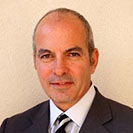Editor’s Note: The Robots Are Coming is a multi-part series by Scott Winters that explores how artificial intelligence is reshaping the role of financial advisors. From humanoid avatars to intelligent automation, each article breaks down the threats, tools, and transformations that will define the next decade—and the advisors who survive it. This is the third article in the series.
The advisory landscape isn’t just evolving—it’s shape-shifting. Artificial intelligence now builds portfolios in milliseconds, generates tax-optimized withdrawal strategies on autopilot, and delivers retirement readiness reports while you’re still confirming the Zoom link.
So what’s left for the human advisor?
Everything AI can’t do. But here’s the catch—you have to stop acting like AI to survive it.
Let’s get one thing straight: generalist advisors are an endangered species. If you’re still trying to be everything to everyone, your biggest competitor isn’t the firm down the street—it’s a $19/month robo-platform with a better response time and zero social anxiety.
Today’s clients, particularly Gen X and Millennials, don’t find a generic “60/40 balanced fund” compelling. They expect algorithms to handle the basics—age-based allocation? That’s a free tool online. Budget tracking? There’s an app. Portfolio rebalancing? A bot already did it while you were still loading your CRM.
What they do want is someone who gets them. Someone who speaks their language, knows their blind spots, and understands the intricacies of their industry, lifestyle, and fears. That’s where human specialists shine—and where AI, for all its data-driven glory, falls short.
AI is fast, but it’s not fluent. It excels at data aggregation, Monte Carlo simulations, dynamic retirement income modeling, and portfolio construction. But it doesn’t read your client’s trade journals. It doesn’t attend their conferences, sweat their deadlines, or know why they suddenly went quiet after receiving a lawsuit. It doesn’t understand the emotional weight of selling a family business or the complexity of managing finances post-divorce. That context—that fluency—is the territory of the specialist.
Let’s shout out someone who understands this concept at a master level: Jenna Kutcher, host of the Goal Digger podcast. With a 93% female audience, she has built a loyal empire of small business owners who are hungry for clarity, confidence, and purpose-driven strategy. Sound familiar? She dishes out bite-sized brilliance on branding, automation, and values-aligned marketing—exactly the kinds of insights financial advisors should be soaking up. And if the male side of the profession is sleeping on her content, that’s not a tech gap—it’s a missed opportunity. Jenna is offering a playbook for building deep trust in a specific community. Advisors, take notes.
So what does niche specialization look like in practice? Imagine being the advisor who works exclusively with doctors too busy to explain how fellowship income flows into their Roth, or tech professionals navigating equity compensation, not ETF ratios. Or small business owners sitting on low-basis real estate, trying not to trigger a capital gains explosion. You’re not offering generic advice—you’re offering insider strategy, spoken in your client’s native language. You’re the one who knows when their busy season hits, when legislation changes everything, and what stress keeps them up at night. That’s your moat. AI has the math, but you have the meaning.
To avoid becoming an expensive version of a robot, start by auditing your current client base. Who do you love working with? Where do you already have momentum, connections, or curiosity? That’s your beachhead. Then dive deep. Study your niche. Subscribe to their trade publications. Join their online groups. Get certified in their world. The more fluent you are, the more trust you build—and the more irreplaceable you become.
Once you know your niche, rebrand like you mean it. Stop being “a financial advisor.” Start being the financial advisor for independent veterinarians. Or mission-driven founders. Or C-suite women navigating sudden wealth. Whatever it is, own it loudly in your website, your content, and your outreach.
And finally, let AI handle the rest. Automate the spreadsheets, the simulations, the administrative fluff. Use that freed-up time to craft better questions, tell more compelling stories, and offer genuine, lived-in guidance.
Here’s the bottom line: “Can AI do what I do?” is the wrong question. The better one is: Am I doing something AI never could?
If you’re clinging to generic financial planning, relying on vague goals and templated portfolios, the answer may soon be “no.” But if you’re speaking directly to a niche, solving for real human complexity, and helping clients align their money with their meaning, then congratulations, you’re already in the future.
In a world flooded with information, people crave interpretation. In a world full of algorithms, they crave empathy. And in a profession chasing efficiency, your ability to provide relevance, resonance, and relationship is your most powerful asset.
So, specialize or step aside because the algorithm isn’t going to wait. And neither are your clients.



















